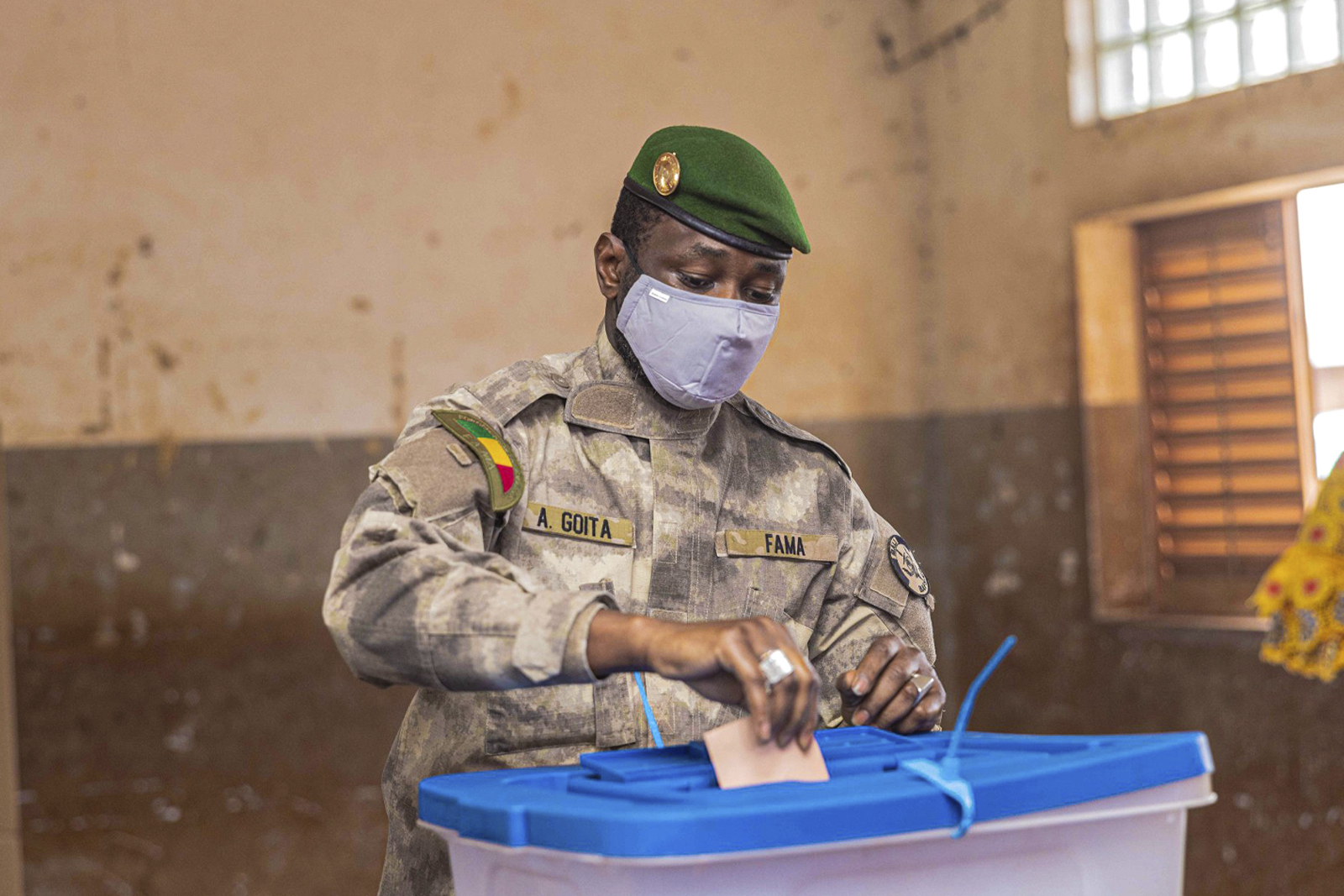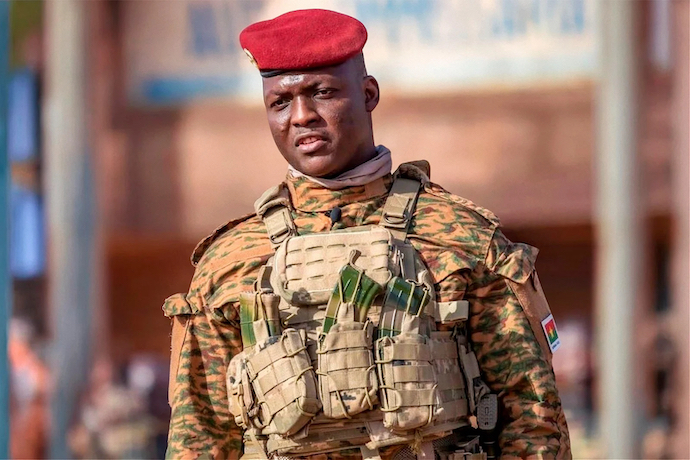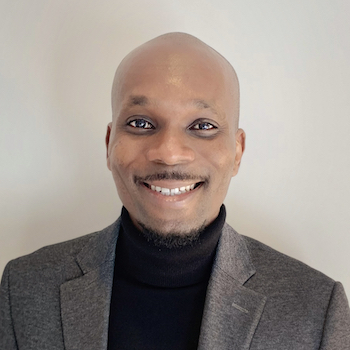
Can Democracy Win Over West Africa’s Military Juntas?
West Africa is now facing a whirlwind of military takeovers. From Mali’s 2020 putsch to the recent tremors in Niger, these coups have shattered the region’s political equilibrium. On one side stand the military juntas of Niger, Mali, and Burkina Faso, each promising stability and sovereignty in the face of rumbling insurgencies and foreign influences. Opposing them are Benin, Nigeria, and Côte d’Ivoire, where leaders, elected through elections and pro-Western, denounce the takeover by military juntas in neighboring countries. Caught in the middle are nations like Togo and Senegal, adopting a cautious approach to this new reality.
This simmering tension fuels a deteriorating security situation. Not only do the military juntas disrupt regional stability, but undemocratic civilian regimes further erode public trust in the democratic process. Meanwhile, the Economic Community of West African States (ECOWAS), the organization entrusted with safeguarding democratic values, faces a more solid opponent: the Confederation of Sahel States.
In Africa, being elected through an election has nothing to do with being democratically elected. Although Africans view civilian-led governments as a path toward a democratic society, the reality has sometimes fallen short of expectations, with some governments contributing to political instability and even military coups. Critics point out that certain long-term leaders, those who change constitutions and those seeking a third or fourth term, undermine faith in democratic ideals. This skepticism extends to pronouncements by some Western and African experts who promote a romanticized view of civilian rule.
The recent military takeovers in Mali, Niger, Burkina Faso, and Guinea are not the products of divine miracles. They stem from underlying issues like ineffective leadership, public frustration, changes to constitutions made without public consent, or fiddled elections. In nations like Cameroon and Togo, citizens are skeptical about elections. They believe that the electoral system is rigged, the winner predetermined, and elected officials prioritize serving external interests over improving the standard of living and having a genuine perspective on their country’s future. Many people in these countries might feel that real change can only come from a complete overhaul of the current system, including a coup.

Military takeovers, with leaders portraying themselves as champions of national sovereignty and anti-colonialism, have garnered initial support from an important part of their citizens. Public demonstrations and even donations have bolstered these regimes. This popularity has emboldened them to demand the withdrawal of foreign troops assisting in counter-terrorism efforts and the creation of the Confederation of Sahel States, which later became a federation.
France, the European Union, and the United Nations have already been forced to pull out of these countries. Now, the United States, with its 1,000 troops stationed in Niger for counter-extremism operations, is set to fully withdraw by September 15, 2024.
These developments have led to two key outcomes in the region. Firstly, leaders of the Sahel confederation are increasingly asserting their independence in decision-making related to their country. They seek to make these choices free from any Western countries’ pressure. The abrupt end of training and operations collaboration between Niger and the US serves as a case in point. This move, following a visit by US officials, was reportedly due to a perceived “threat and condescending attitude” towards Niger’s current leadership. The recent withdrawal of the operating permit for a large uranium mine from the French company Orano is also an example. These acts highlight the novel approach these countries—Niger in this case—are taking in their relationships with Western powers.
Another outcome is the growing insecurity due to the gap left by the withdrawal of international counterterrorism forces. This has led to a rise in terrorist attacks, particularly in Burkina Faso, leading to increased civilian fatalities. While the Sahel alliance countries have received new military equipment from their new strategic partner, Russia, and their security and defense forces continue to fight bravely, many regions of their nations remain plagued by an alarming extremist group presence. Al-Qaeda-linked group Jama’at Nasr al-Islam wal Muslimin (JNIM), for instance, has continued its attacks and even attempted to expand its war to coastal nations like Benin and Togo.
Military coups that topple democratically elected leaders strike a devastating blow to the very foundations of democracy. They undermine the will of the people, destabilize the political landscape, and often pave the way for instability and human rights abuses. Yet, the reasons behind coups are rarely black and white.
The motivations of coup leaders can be a tangled web. Not all are solely driven by greed. Some, however, are misguided in their methods and may genuinely believe they are acting in the national interest. They might perceive a looming threat—rampant corruption hollowing out the state, an impending economic meltdown, government incompetence in conflict periods, or external forces jeopardizing national security.
These leaders often come from the military, individuals who have pledged their lives to serve their country. Patriotism and a fervent desire to restore order, even if it comes at a heavy cost, may fuel their actions. Acknowledging this dedication is crucial, even as we recognize the destructive consequences coups can have.
A one-size-fits-all approach simply will not do. While outright condemnation of all coups is tempting, it fails to consider the unique circumstances of each nation. Blind opposition risks giving a free pass to authoritarian regimes that employ violence, assassination, and fear to maintain their grip on power. These regimes are notorious for silencing dissent, fueling corruption, and driving frustration among their own people, creating a breeding ground for discontent that coups can exploit.
Criticizing military takeovers is easy from one’s comfort, but a more thoughtful perspective is essential. Decades of hardship under corrupt civilian rule in some African countries can create a simmering pot of frustration, a situation ripe for the eruption of violence and coups.
The key lies in a nuanced analysis that takes a country’s specific context into account. A military takeover targeting a genuine democratic leader is a world apart from one confronting a dictator who has rigged elections and clung to power for decades. Africans understand this distinction well. The harsh realities of these situations demand tailored responses, not blanket condemnations. Acknowledging this complex interplay of factors helps to effectively address the root causes of coups and pave the way for a more stable, peaceful, and democratic future.
Authoritarian regimes, both military and civilian-led, cast a long shadow over West Africa’s prospects. Military juntas often rise under the banner of protecting national interests or ushering in a brighter tomorrow. Civilian strongmen, on the other hand, seek alliances with Western powers, particularly former colonizers, to maintain a façade of stability and dubious development. Yet, both paths ultimately lead to instability.
Moreover, the pursuit of democracy in West Africa faces a double bind. Russia’s support for military takeovers weakens democratic institutions, while ECOWAS and the West’s tolerance of rigged elections erodes public faith in democracy itself. Both approaches undermine the very goals of stability and development they claim to pursue.
The solution lies not in picking sides, but in forging a new path to a more sustainable democracy. Neither military strongmen nor autocratic civilians hold the key to a better future. Africans, especially those in West Africa, yearn for genuine representation. Electing leaders who truly reflect their will and not those who were propelled to power by strategic games of external forces through doubtful elections or seen as pawns of former colonizers, is the cornerstone of building a sense of ownership and the fight for stronger democratic institutions.
External meddling, coupled with a tacit acceptance of undemocratic maneuvers, risks fostering a generation of anti-liberal democracy, anti-West but pro-Russian Africans. They will see the West as complicit in authoritarian civilian-led regimes, believing that only violence or coups d’état can bring change.
Only by breaking the cycle of coups and civilian-led autocracy and by refocusing on real concerns like terrorism, food security, corruption, good governance, and unemployment can West Africa forge a brighter future. A future where its citizens, not external forces, determine their own destiny. This will require West Africans themselves to take ownership of the democratic process, building institutions and fostering a political culture that reflects their unique needs and aspirations. It is a challenging path, but one that holds the promise of a truly democratic and prosperous Africa.
